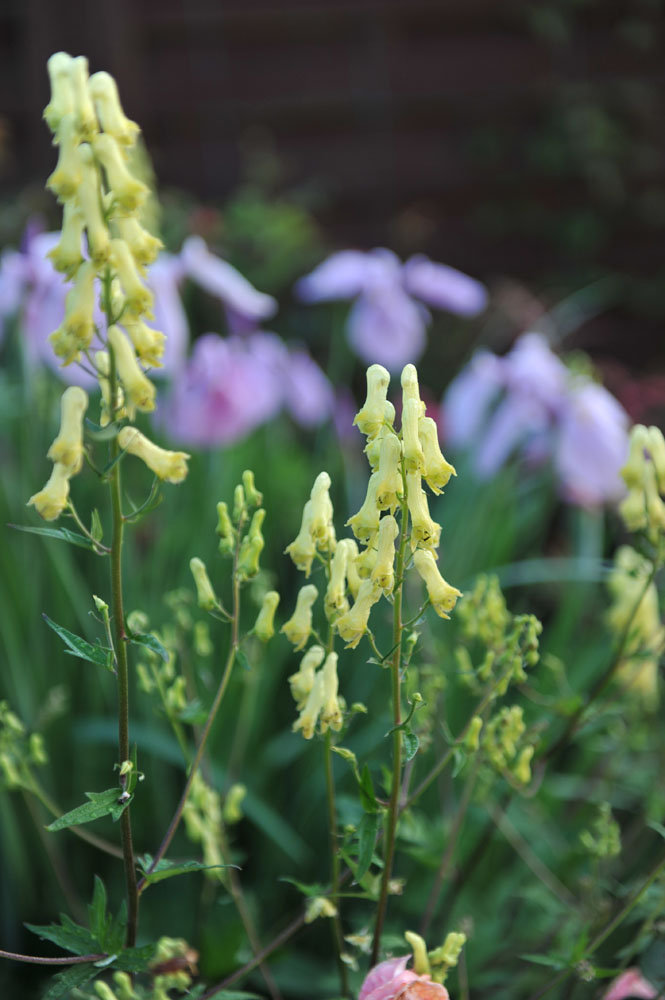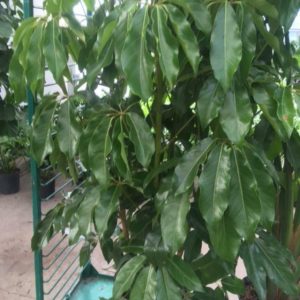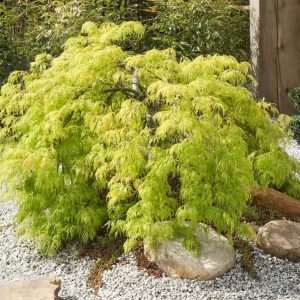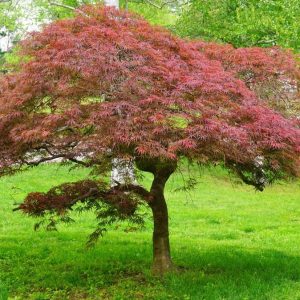Description
Aconitum – Aconite – Monkshood – Wolfsbane –
There are about 100 species, in this Genus made up of perennials and/or biennials. Found across the northern Hemisphere renowned for its poisons sap. The sap has been used in execution of criminals, baiting wolves, or tainting enemies water supply and medicinally. Erect twinning stems bear curious 1-2” long, 5 petal flower with one petal bulges up into a prominent helmet/hooded like shape in long racemes or panicles 12-24” long which can be blue, yellow, purple, or white. Bears rich green kidney shape leaves 2-4” long.
Aconitum will tolerate most soil in a deep cool moist site. If summers are hot and dry, plant in partial shade. A great plant for borders and woodland gardens. Also great cut flower but if skin comes in contact with the plant it may irritate, remember it is highly toxic. Divide ever 3 years, some varieties require stalking.
Prone to aphids, fungal stem rots, crown rot, Verticillium wilt, downy mildew, powerdy mildew and rusts.
Aconitum lycoctonum subsp. lycoctonum – Aconitum septentrionale – Wolf’s bane – found from Western Europe to Romania. The leaves are deeply lobed, with climbing stems that bear tall narrow racemes of pale yellow cream or purple hooded flowers in mid and late summer
Zones 4-9





